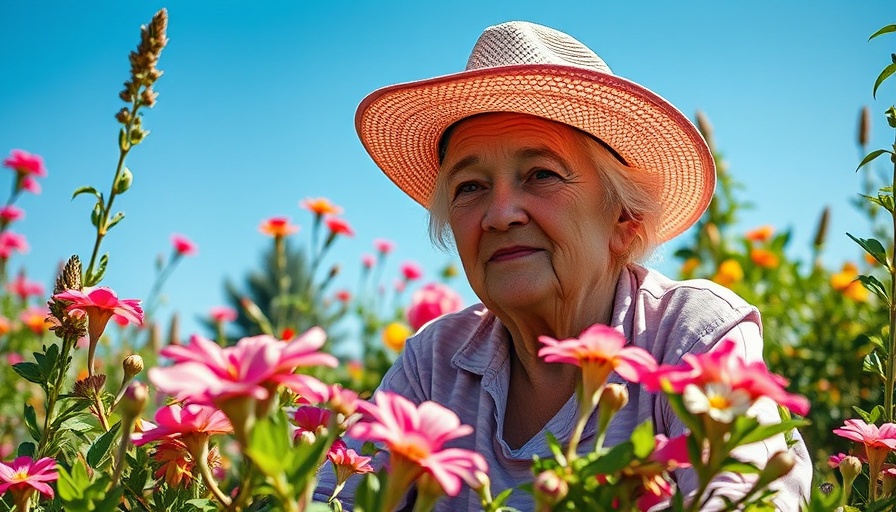
Understanding the Importance of Indigenous Gardening in South Africa
As Dr. Elsa Pooley prepares to launch her latest book, South African Indigenous Garden Plants: The Gardener’s Guide, she highlights the significance of indigenous gardening in promoting biodiversity and environmental stability. Located at Renishaw Hills, a community known for its magnificent indigenous gardens, the event showcases not only Dr. Pooley's extensive knowledge as a botanist and author but also emphasizes ecological practices crucial for combating climate change.
Meet the Expertise Behind the Book
Dr. Pooley is joined by her co-authors, Geoff Nichols and Andrew Hankey, both notable figures in horticulture. With extensive experience and a deep passion for indigenous plants, these experts provide comprehensive insights into the use of local flora for landscaping and ecological restoration. This collaboration brings together an impressive wealth of local botanical knowledge essential for sustainable gardening, underscoring that gardening choices can have profound environmental impacts.
Significance of Indigenous Plants in Climate Action
Climate change poses significant challenges to our ecosystems and biodiversity. As individuals and communities increasingly engage with nature, particularly through gardening, the choice of native species becomes critical. Indigenous plants not only adapt better to local conditions but also require less water and maintenance compared to non-native varieties. This harmony fosters natural habitats for local fauna, thereby contributing to carbon sequestration and helping to mitigate greenhouse gas emissions.
A Look at the Book's Unique Features
The book includes an extensive plant catalog that details 2,400 indigenous species, providing gardeners with tools for successful planting. It serves as both a practical guide and an encyclopedia, presenting illustrations and descriptions that cater to various gardening needs, from soil requirements to optimal growth conditions.
Broader Implications of Indigenous Gardening
The event at Renishaw Hills is not only a book launch but a broader celebration of sustainable practices and community engagement in environmental issues. By promoting indigenous gardening, communities can actively contribute to a green economy, essential for a just energy transition, as highlighted in recent discussions regarding South Africa's Integrated Resource Plan (IRP). The focus on local species supports eco-friendly initiatives and aligns with the global movement towards environmental consciousness.
Future Trends in Sustainable Gardening
As the garden design industry evolves, there is growing recognition of the role that indigenous plants can play in sustainable landscaping. This event and the book launch signify a shift towards a more holistic understanding of gardens, moving away from purely ornamental designs to incorporate biodiversity and ecological utility. Such trends will shape the future of both private and public gardens, aligning with advancements in green technology and energy efficiency.
Community Engagement: An Invitation to Sustainability
The book launch encourages attendance not just for the sake of horticultural knowledge but to identify pathways for individuals to engage with sustainability. By developing an appreciation for indigenous gardening, participants contribute to a collective effort in addressing climate change, preserving historical and local plant species, and fostering community resilience.
Residents of Renishaw Hills, like Kate and Graham Grieve, are also launching their own book, adding to the day's offerings and focusing on specific regional biodiversity. This collaborative atmosphere enhances community ties, making the gardening event a multifaceted experience for all involved.
Concluding Thoughts
The upcoming launch of South African Indigenous Garden Plants: The Gardener’s Guide at Renishaw Hills on March 20, 2025, epitomizes an environmental call to arms through indigenous gardening practices. Inviting gardeners—from novices to seasoned experts—to explore sustainable solutions, the event enriches our understanding of how our gardening choices can steadfastly pivot the future toward sustainability.
Come join us at the Renishaw Hills Community Centre to celebrate the intersection of gardening, community, and sustainability. Together, let’s cultivate a greener future.
 Add Row
Add Row  Add
Add 




Write A Comment